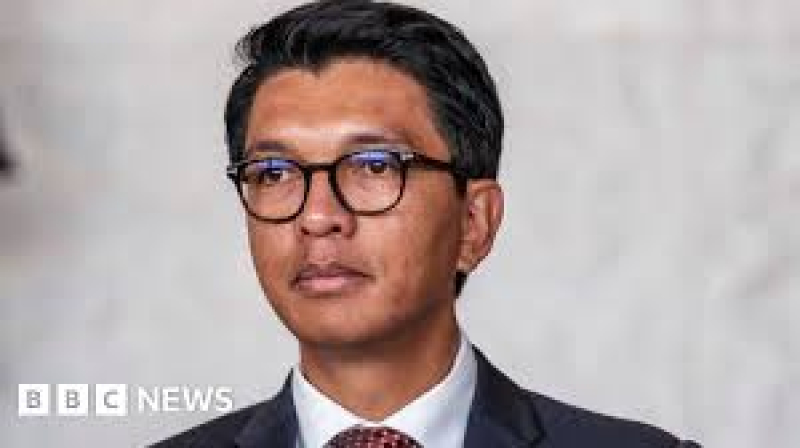- Referendum Sees 4.82cr ‘Yes’ Votes, Turnout 60.84% |
- EC Issues Gazette for 297 Newly Elected MPs |
- 9-year-old boy beaten to death over betel nut theft in M’singh |
- BNP fast-tracks cabinet plans after resounding victory |
Madagascar president re-elected in contested poll

Madagascar's incumbent President Andry Rajoelina has won a third term, following a disputed election boycotted by the opposition and its supporters.
He won 59% of the vote to defeat his two closest rivals, ousted ex-President Marc Ravalomanana and Siteny Randrianasoloniaiko.
The election recorded a voter turnout of 46%, considered to be the lowest in the island country's history.
The low turnout followed calls for poll boycott by 10 presidential contenders.
They also withdrew their candidacies over concerns about the credibility of the election and denounced President Rajoelina's bid for a third term and the validity of his candidacy, given his dual French nationality.
The constitutional court dismissed their appeals to annul Mr Rajoelina's candidacy. He also dismissed the accusations and called them a political tactic.
Despite their withdrawal, the candidates' names stayed on the ballot. Mr Randrianasoloniaiko gained 14% of the vote and Mr Ravalomanana 12%.
The constitutional court has nine days to confirm the results announced on Saturday by Madagascar's electoral body, Ceni.
The opposition collective that boycotted the election has already declared that it will not recognise the results of the 16 November poll.
There were six weeks of demonstrations and clashes with police in the build-up to the election, prompting the imposition of a curfew in Antananarivo on the eve of the poll.
Mr Rajoelina, 49-year-old entrepreneur and former DJ, won a presidential run-off vote against Mr Ravalomanana in 2018, after neither of them obtained more than 50% of the vote as required to be declared president in the first round.
He had ousted Mr Ravalomanana in a 2009 coup that was backed by the army.
He faces the tough task of creating jobs and improving the economy, in a country where 75% of people live below the poverty line, according to the World Bank.
He is also expected to bring political stability to a country that has been rocked by years of political turbulence, reports BBC.

